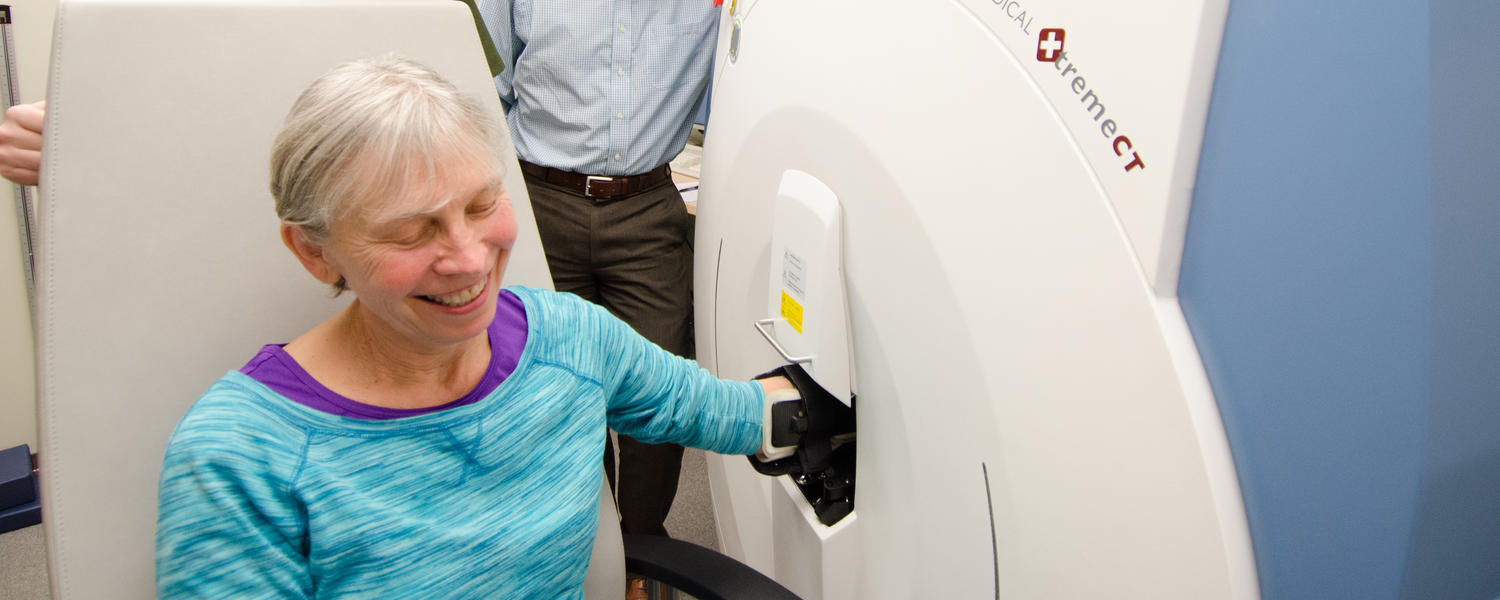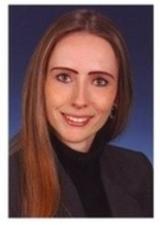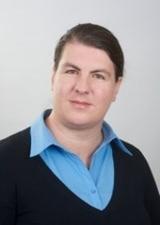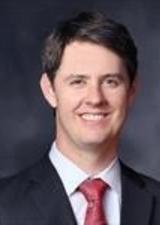
The SPECTRA Collaboration
Study grouP for x-trEme Computed Tomography in Rheumatoid Arthritis
The SPECTRA Collaboration
Study grouP for x-trEme Computed Tomography in Rheumatoid Arthritis
About
The Study grouP for x-trEme Computed Tomography in Rheumatoid Arthritis (SPECTRA) was formed in 2011 by Dr. Cheryl Barnabe to facilitate world-wide collaboration in developing advanced imaging tools to better understand and treat arthritis. Since its inception, the collaboration has published guidelines for standard image acquisition, and reached consensus on defining bone erosions as well as measuring joint space.
The collaboration now has grown to include members from five continents, and is an interdisciplinary team, including rheumatologists, immunologists, radiologists, biomedical engineers, and physicists. Our goal is to expand the use of HR-pQCT as an imaging biomarker for rheumatic diseases affecting the small joints of the hands and feet.
Since the original meeting, SPECTRA has hosted regular study groups at the American College of Rheumatology (ACR) and European League Against Rheumatism (EULAR) Annual Meetings since 2013, and was twice (2016 and 2018) selected as a Special Interest Group for the Outcome Measures in Rheumatology (OMERACT) consensus conference aimed at improving outcome measures in rheumatology. SPECTRA has also been invited to present regularly at the XtremeCT User Meeting held in conjunction with the American Society for Bone and Mineral Research Annual Meeting. Including the original Calgary meeting, SPECTRA has held stand-alone meetings 5 times.
Recent Events
SPECTRA-QMSKI Pre-Meeting in Calgary, Canada, February 23 and 24, 2019
Imaging in Inflammatory Arthritis Workshop at Quantitative Musculoskeletal Imaging Workshop (QMSKI) in Lake Louise, Canada, February 24 to March 1, 2019
The SPECTRA (Study grouP for xtrEme Computed Tomography in Rheumatoid Arthritis) recently held a one-day meeting, as well as a 90-minute workshop as part of the QMSKI. SPECTRA has focused on collaboratively developing and validating measurements of joint space width, erosions, osteophytes and bone microarchitecture using HR-pQCT at the 2nd and 3rd metacarpal joints, which are the most frequently involved joints in chronic inflammatory rheumatic diseases. Funding for the meeting was provided by a Canadian Institutes for Health Research Planning and Dissemination grant and Scanco Medical. Our meeting had 25 attendees from nine countries, and included researchers, rheumatologists, industry members and a patient research partner.
The overall goal of the meeting was to determine SPECTRA’s future research agenda, and discuss methods to improve the utilization of HR-pQCT in inflammatory arthritis research. Attendees with active research programs in inflammatory arthritis presented brief research updates. Two key goals were determining the clinical trial readiness for the group, as well as determine strategies for translation and dissemination of SPECTRA outcomes. Complete meeting minutes are available here.
Dr. Gabrielle Zimmermann (Program Coordinator for Knowledge Translation and Implementation Science for the Alberta SPOR Support Unit) facilitated discussion about the development of a knowledge translation plan to expand the use of HR-pQCT for inflammatory arthritis. The knowledge translation plan is available here in text and table format.
During the 90-minute session at QMSKI, we had the opportunity to share progress with the larger MSK imaging community. Dr. Stephanie Finzel presented a comparison of HR-pQCT to ultrasound, the imaging modality most commonly used in rheumatological clinical practice. Dr. Klaus Engelke presented tools for quantification of erosion size. Finally, Dr. Kathryn Stok gave a demonstration of the joint space analysis workflow that is ready to be distributed to Scanco users.
Based on the outcomes of the discussion at the SPECTRA meeting and QMSKI, our next steps are to develop task forces to tackle the following areas: 1) develop a standardized dataset for algorithm testing and comparison, 2) finalize and implement the knowledge translation strategy, and 3) investigate funding sources to facilitate this collaborative work as well as a multi-centre trial. SPECTRA is also organizing a working group at the 2019 American College of Rheumatology Annual Meeting, November 8 - 13 in Atlanta, Georgia.
If you would like to join one of these task forces, or if you were unable to attend the meeting but would like to receive future SPECTRA-related communications, please contact Kathryn Stok (kathryn.stok@unimelb.edu.au).
Accomplishments and Progress to Date
SPECTRA has succeeded in standardizing acquisition parameters for the MCP joints (Barnabe et al. 2012 J Rheum) that have been employed in all known studies since 2012 to allow comparison of cohorts assessed at different centres worldwide. One significant challenge using HR-pQCT is defining bone damage at the microarchitectural level as no previous modality could resolve the small defects observed. SPECTRA developed a consensus approach for trained observers to manually identify, landmark, and quantitatively measure erosions that is now standardized (Barnabe et al. 2016 J Rheum). More recently, SPECTRA drove an effort to consolidate and standardize algorithms to measure joint space (Stok et al. 2017 J Rheum), and members are working with the manufacturer (Scanco Medical) to implement the algorithm for open dissemination to HR-pQCT users worldwide.

International Co-Chairs
Dr. Stephanie Finzel, MD, Senior Attending Physician, Lecturer, Head of Clinical Trials Unit Rheumatology, Department of Rheumatology, University of Freiburg, Freiburg, Germany.
Dr. Stephanie Finzel studied medicine at the Friedrich-Alexander-University of Erlangen-Nuremberg in Germany. After finishing her recidency, she joined the Department of Rheumatology at the University of Freiburg as a Senior Attending Physician.
Her main focus is the detection of periarticular bone changes in early and established inflammatory arthritis via musculoskeletal ultrasound (MSUS) and high-resolution peripheral quantitative computed tomography (HR-pQCT).
Stephanie was a fellow for the OMERACT ultrasound workshop in 2012 and is now an established member of the ultrasound workshop. She is a founding member of the SPECTRA-group, and a chairperson of SPECTRA (Europe).
Her aim is to support the validation process of both imaging techniques as outcome parameters in rheumatology clinical trials according to the methodology and regularities of OMERACT. As head of the Clinical Trials Unit Rheumatology she increasingly focusses on translational aspects of rheumatology and immunology.

Dr. Lai-Shan Tam
Dr. Lai-Shan Tam, MD, Division Head and Professor, Department of Medicine and Therapeutics, Division of Rheumatology, The Chinese University of Hong Kong, Hong Kong
Lai-Shan Tam, MD, is division head and a professor in the Division of Rheumatology within the Department of Medicine and Therapeutics at The Chinese University of Hong Kong (CUHK). Dr Tam has been serving as the chairperson of the international affair committee of Asia Pacific League Against Rheumatism (APLAR) since 2012, Vice President of APLAR 2014-2016, International Task Force subcommittee of American College of Rheumatology (ACR) in 2014, the Membership Task Force subcommittee of ACR in 2015, and the European League Against Rheumatism (EULAR) Programme Committee from 2016 to 2019. She is also the president of the Hong Kong Society of Rheumatology from 2011 to 2014. Professor Tam serves as the Associate Editor of International Journal of Rheumatic Disease, and also served as members of the editorial boards in a number of journals including Rheumatology, Frontiers in Medicine and the Latin American Journal of Psoriasis and Psoriatic Arthritis. Dr Tam is the first author or co-author of over 190 articles published in major rheumatology journals.
Her research interests include premature atherosclerosis and bone loss in patients with rheumatic diseases. She is the chairperson (Asia) of the The Study GrouP for XTrEme-CT in RA (SPECTRA) group since 2014, and also a member of The Group for Research and Assessment of Psoriasis and Psoriatic Arthritis (GRAPPA) since 2012.

Dr. Kathryn Stok
Dr. Kathryn Stok, PhD, Senior Lecturer, Department of Biomedical Engineering, University of Melbourne, Australia
Dr Kathryn Stok (FIEAust) is a Senior Lecturer of Mechanobiology in the Department of Biomedical Engineering at the University of Melbourne, and an innovative biomedical engineer in quantitative microstructural imaging (micro-computed tomography) and biomechanics of cartilage and joint structures. She uses a variety of experimental and computational approaches. Her research work merges solid engineering approaches with biomedical advancement.
She was awarded a PhD from ETH Zurich, Switzerland in 2008. This work involved devising novel imaging and mechanical platforms for quantitative measurement of articular cartilage. In 2008, Dr Stok founded the Integrative Cartilage Research (ICR) Group at ETH Zurich, establishing industrial and clinical collaboration, winning four consortium grants, and multiple subcontracts in quantitative mechanobiology around the themes of microstructural imaging of biological tissues and organs, and characterisation (mechanical and structural) of regenerative medicine materials and tissue engineered constructs.
In September 2016, Dr Stok took up a position at the University of Melbourne to continue this work. She aims to improve mechanobiological measurement and control methods using novel imaging, mechanics and computational modelling. This involves the development of novel, in vivo, imaging-based measurement technologies for hard and soft biological tissues in 3D at different length scales. It will further enable investigation of joint health, with commercial potential in imaging, mechanobiology and biofabrication, and translation into Medtech patents and spinoffs. She Heads the Integrative Cartilage Research Group, and is a co-founder of the Melbourne School of Engineering Mechanobiology Lab in the Parkville Biomedical Precinct.

Andrew Burghardt
Andrew Burghardt, Research Specialist, Department of Radiology and Biomedical Imaging, University of California, San Francisco
Andrew Burghardt is a Research Specialist in the Department of Radiology and Biomedical Imaging at University of California, San Francisco where he serves as the Technical Director of the Quantitative Micro-Imaging Facility (QMIF). His area of expertise is high-resolution imaging computational analysis of musculoskeletal tissues. Osteoporosis, rheumatoid arthritis, and bone acquisition and development are the principle focus application areas for his research. As a Principal Investigator he has been awarded two R01s from NIH/NIAMS related to the standardization of HR-pQCT and the development of 3D statistical mapping techniques for population-based analyses of bone quality. He has also been a co-investigator on several other significant NIH-funded projects, including Osteoporotic Fractures in Men (MrOS), a 6000-subject observational study of osteoporosis in Men. He is a member of the joint International Osteoporosis Foundation and American Society for Bone and Mineral Research HR-pQCT Working Group. He is also a founding member of the SPECTRA group (Study GrouP for XTrEme-CT in RA) that aims to develop standard methods to detect and quantify early signs of progression and treatment response in rheumatoid arthritis using HR-pQCT.

